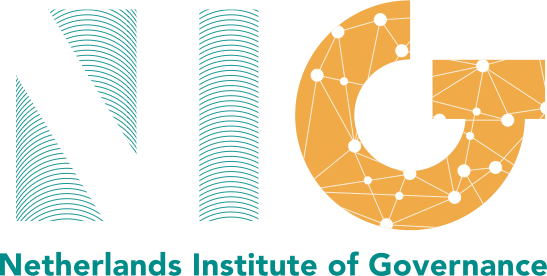
Network and Collaborative Governance: Theories, Methods and Practices
Research into collaborative and network governance is now firmly established all over the world. It offers important opportunities for theoretical and methodological development, and for the generation of new knowledge with both academic and policy relevance. National and local differences demonstrate the need for theoretically and methodologically sound comparative research. The course will provide both an overview of the state of the art and a platform for discussing collaborative and network theories and students individual contributions.
Organisered by Netherlands Institute of Governance and IRSPM
Date: 13-15 April 2024
Hosted by the University of Tampere (Finland)
Instructors
Erik Hans Klijn (course director) (Erasmus University)
Joris Voets (Gent University)
Guest lectures: Jenny Lewis (Melbourne University) Rianne Warsen (Erasmus University)
Instructor email address
klijn@essb.eur.nl and Joris.Voets@UGent.be
Short course description
Transformations of state and society over the last 3 decades have increased the importance of various forms of collaborative and network governance in forming and implementing public policy. Collaborative and network forms of governance take place in networks (including collaborative arrangements like partnerships and arrangements to foster coproduced public services), and engage public, private and civil society actors at transnational, national, regional and local scales in shaping the future of our societies. These networks or collaborative arrangements however may fail due to many causes. Managing network and collaborative arrangements is considered essential as a means to mitigate the risk of failure and enable networks to achieve desired outcomes in terms of more effective and democratic governance, more innovation policy making and delivery of public services.
Research into collaborative and network governance is now firmly established all over the world. It offers important opportunities for theoretical and methodological development, and for the generation of new knowledge with both academic and policy relevance. National and local differences demonstrate the need for theoretically and methodologically sound comparative research. The course will provide both an overview of the state of the art and a platform for discussing collaborative and network theories and students individual contributions.
This course is offered by the Netherlands School of Governance (NIG) in cooperation with the International Research Society of Public Management (IRSPM). The course will be offered in Tampere before the International research Society of Public Management (IRSPM) conference from Saturday 13 april 2024 til Monday 15th of April (the conference is from 16-18 April 2024).
Main lecturers are professor Erik-Hans Klijn (former IRSPM-president and co-chair of the Special Interest Group ‘Complexity & Network Governance’) professor Joris Voets (co-chair of the Special Interest Group ‘Complexity & Network Governance’), supported by guest lectures by professor Jenny Lewis (past IRSPM-president) and dr. Rianne Warsen. This course creates a learning community in which PhD students will:
- Develop their analytical understanding of collaborative and network governance;
- Strengthen their theoretical and methodological knowledge;
- Test their ideas and conclusions through dialogue with leading researchers;
- Contextualize their research in a comparative, multi-national setting;
- Have a chance to present and gain feedback on their research;
- Build an international network of young researchers in the field.
Credits
The course accounts for 4 ECTS, which includes the writing of a paper and preparing the literature. When finished the course students will get an official certificate issues out by The Netherlands Institute of Governance (NIG), which is an official accredited research school.
Registration
If you want to participate in the course, please apply by filling in the application form on the NIG website:
https://www.nigovernance.nl/apply-for-phd-courses/
Preparation
Preparation involves 1. Reading the literature that is mentioned in the course guide 2. Writing a research paper and presenting that during the course
[Indication of expected type of preparation, to be finalized in syllabus. Titles of readings may be mentioned, but may also be left open until syllabus is finalized. Rule of thumb: 1 course day = max 1-2 days of preparation]
Assessment
Based on participation in the course and delivering a research paper and presenting that paper
Number of participants
From 10 to maximum 25 participants
Fee
Free for NIG PhD members
500 euros for PhD candidates based at NIG member universities
500 euros for IRSPM participants
750 euros for other participants
